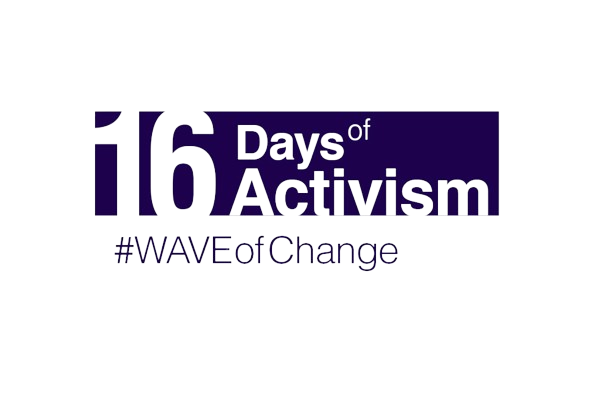Today, on International Human Rights Day, we reaffirm the fundamental truth that women’s rights are human rights. On the occasion of WAVE’s 30th anniversary and as we approach the 30th anniversary of the Beijing Platform for Action next year, a milestone in advancing gender equality, it is imperative to reflect on the progress achieved, the challenges that persist, and the urgent need to defend and expand hard-won women’s human rights. In the face of increasing pushback, we must remain vigilant to safeguard the fundamental rights and protections of women and girls from erosion.
Over the past three decades, significant advancements have been made in recognising and protecting women’s rights globally. Women have gained greater representation in decision-making positions, strides have been made towards equal pay, and access to traditionally male-dominated fields such as technology, science, and politics has expanded. Progress has also been achieved in access to sexual and reproductive health and rights, education, credit, land and property ownership, and specialised healthcare for women. In the area of violence against women and girls (VAWG), policy and legislation have been adopted to ensure that these human rights violations are addressed. Specific frameworks of action such as the Istanbul Convention and the EU Directive on combatting violence against women and domestic violence provide standards for protection of survivors and define a path to access protection and justice.
However, alongside these advancements, we are witnessing a mounting backlash against human rights, including women’s rights. This gender backlash is not only aimed at halting general progress on human rights, but it actively seeks to roll back acquired and recognised rights of women and girls, because they empower women and girls. From limiting the access of women’s organisations and women’s specialist services to sustainable funding nationally, to increasingly framing policy issues that directly impact women in gender neutral language, to directly targeting women human rights defenders, this attack on women’s rights is part of a broader political effort to undermine gender equality, where women’s rights are framed as secondary or negotiable.
This is evident in the discourse of right-wing politicians and their attacks on women’s rights, as seen in recent elections across Europe. We are witnessing an increase in institutional violence against women, often driven by anti-democratic leaders who oppose gender equality and seek to dismantle rights. These leaders deny women autonomy over their own bodies, restrict their roles to the private sphere, and undermine progress towards gender equality. This trend is sometimes reinforced by female leaders who, while occupying spaces of power, advance regressive agendas and engage in tokenism. Women are increasingly stereotyped and excluded from decision-making spaces, often being relegated to harmful traditional gender roles rather than being recognised for their capabilities and given opportunities to empower themselves and be empowered.
Additionally, the ongoing challenges posed by conflict and war exacerbate these issues. The disregard for the rules of war, enshrined in the Geneva Conventions, and the deliberate targeting of civilians remain deeply troubling. This disregard continues to devastate women and girls in Ukraine, Sudan, Palestine, Afghanistan, Yemen, and other conflict-affected regions. In patriarchal societies already marked by systemic gender inequalities, conflict compounds the vulnerabilities of women and girls, leaving them at heightened risk of violence, exploitation, and neglect. However, the challenges are not limited to armed conflict.
The populations most impacted by this gender backlash are those who have historically faced the greatest barriers to accessing these rights due to intersecting aspects linked to their gender, ethnicity, class, education and ability, among others. This is, undocumented, migrant and refugee women, women human rights defenders, and marginalised groups such as women of colour, Roma women, women with disabilities, older women, and other women living on the margins.
At the same time, women’s specialist services that are at the frontlines of directly supporting women and children experiencing VAWG, are being sidelined. These feminist services, built on decades of expertise and recognising the complex and intersecting needs of women, offer a crucial lifeline in a landscape that continues to perpetuate VAWG at both institutional and interpersonal levels. Yet, there is a systematic failure to invest in these vital services and to understand the gendered dynamics of violence, perpetuating structural disadvantages for women.
The consequences of the neglect of women’s human rights are heavy. As the recent EIGE-FRA-Eurostat Survey report highlights, a decade after their initial findings, the statistics remain shockingly unchanged: one in three women in the EU have experienced physical or sexual violence in their lifetime. For VAWG to end, we must address its root causes such as the power dynamics and structural inequalities between women and men, as well as the harmful social norms and gender stereotypes in societies. This requires a paradigm shift centred on primary prevention that envisions and actively works towards a reality were preventing violence before it occurs is possible.
The urgency to come together in the defence of women’s rights, women led organisations and all human rights has never been greater. Reflecting on the impact of intersectional discrimination is critical. On this International Human Rights Day, the WAVE Network calls for renewed commitment and solidarity in the fight for women’s rights. We must join forces to resist the backlash, safeguard the progress made, and push forward towards a world where all women can live free from violence, discrimination, and inequality. Only through collective action can we build a future where the promise of human rights is fully realised for every woman, everywhere.
WAVE Network
Empowering Women. Ending Violence.















